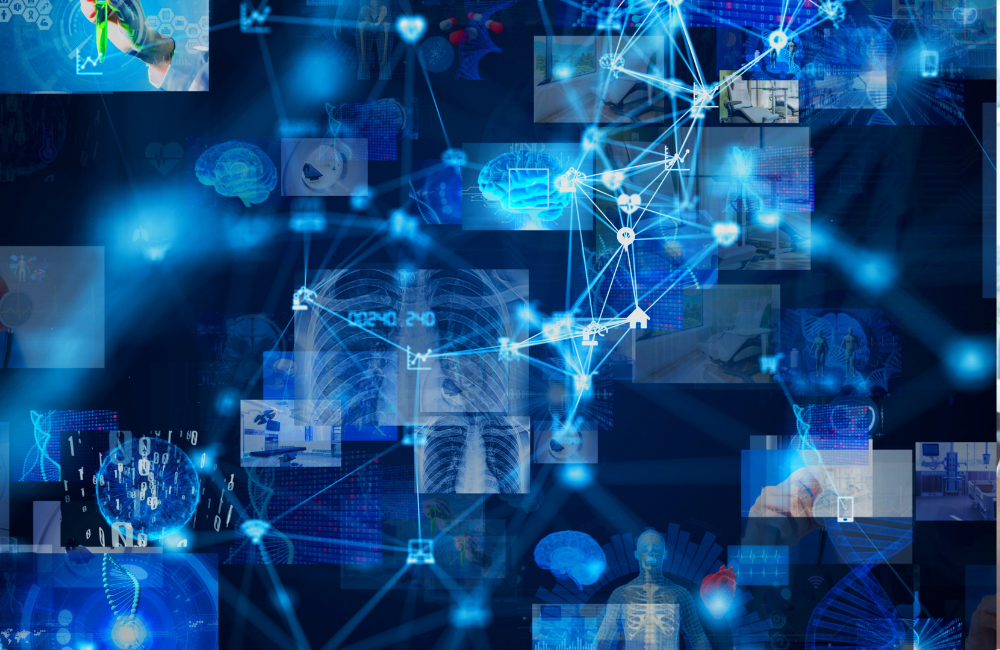HHS Leaders Say Emerging Technologies Making Health Data Actionable
Cloud, AI, machine learning and wearables are helping drive agencies’ mission and data-driven decision-making.

Emerging technologies and advances in infrastructure are making data across federal health agencies more actionable.
Health IT leaders from the National Institutes of Health, Food and Drug Administration and Centers for Disease Control and Prevention highlighted during the Health Innovation Summit this week how modernized infrastructure and various new technologies have sharpened their ability to advance research, regulation and public health threats, including COVID-19.
More specifically, these officials discussed how they have been able to unlock the power of data with emerging technology adoption to drive mission. NIH CIO and Director of its Center for Information Technology Andrea Norris highlighted how migration to the cloud enabled rapid dissemination of the COVID-19 genetic sequence, enabling researchers to learn about the virus and begin vaccine development.
“We’ve seen great success with that vaccine platform, and we also made that genetic sequence available worldwide so that researchers around the world could study and learn from it, and we did that through our cloud platforms and capabilities and our commitment to open access to scientific data,” Norris said. “During that same time, we moved more than 100 petabytes of scientific research data into the cloud, large repositories of diverse datasets spanning all disease areas, all different types of data — genetic data, health record data, phenotypic data, sensor data.”
CDC has also seen modernization in its IT infrastructure make data more ready, shareable, scalable and usable across its enterprise. Dr. Daniel Jernigan, CDC’s acting deputy director of public health science and surveillance, shared how the agency moved its siloed systems to the cloud to share and use data to respond to COVID-19.
“We actually had the resources and momentum to get that cloud infrastructure in place,” Jernigan said. “We did that with a thing called the immunization data lake, which actually then became a place where information can be received.”
The cloud foundation enabled CDC to receive information from various data sources and increased capacity for states to report electronic lab data from thousands to millions of reports per week just for COVID-19 alone. Jernigan added that currently over 7,100 health care facilities in 47 states can conduct COVID-19 electronic case reporting with CDC.
“Now, over 140 million COVID-19 vaccination administration reports have been received, processed and made available through CDC’s immunization data lake to average about 3.1 million records per day,” Jernigan said.
FDA is also moving forward with its IT and data modernization plans, but Anindita Saha, the agency’s assistant director for its Digital Health Center of Excellence said that applying emerging technologies like wearables, artificial intelligence and machine learning to data collection can help sharpen regulatory decision-making. These technologies do this by providing information from patient-generated data and other novel data sources.
“[Technologies] are all going to be important when we’re talking about wearables, other types of sensor-based technologies, how that can advance decentralized clinical trials,” Saha said. “We’re hearing a lot from the patient engagement perspective, if you’re able to bring the trials more to the patient, you might get more enrollment. You’re going to reduce drop-offs, you’re going to actually make the trials themselves more friendly to patients and maybe increase the likelihood of getting also more diversity.”
Norris agreed that wearables, AI and machine learning are rising stars in emerging technologies in the health space, adding that the tech can especially sharpen imaging and scanning in the medical space.
Even though COVID-19 also helped jumpstart many federal health agencies’ modernization needs forward to address the pandemic, Norris, Jernigan and Saha all emphasized that they intend to build off the momentum induced by this public health emergency to create long-term progress with these technologies.
This is a carousel with manually rotating slides. Use Next and Previous buttons to navigate or jump to a slide with the slide dots
-

Opinion: Original Intelligence Is the Missing Piece for AI Transformation
Limitations of AI agents and development drive growing needs for workforce development and "original intelligence."
3m read -

VA CIO Targets Modern IT and Smarter Workforce Alignment
Agency leaders told lawmakers they are focused on trimming legacy systems and restructuring its workforce to streamline operations.
3m read -

Pentagon's $200M AI Contracts Signal Broader Effort to Transform Talent
The Army is leveraging Silicon Valley, reservist programs and new hiring strategies to integrate critical digital skills in its ranks.
5m read -

AI Foundations Driving Government Efficiency
Federal agencies are modernizing systems, managing risk and building trust to scale responsible AI and drive government efficiency.
43m watch -

Inside DOD’s Push to Grow the Cyber Workforce Through Academia
Diba Hadi gives her first interview since becoming principal director of the DOD’s Cyber Academic Engagement Office.
15m listen -

Agencies Tackle Infrastructure Challenges to Drive AI Adoption
Federal agencies are rethinking data strategies and IT modernization to drive mission impact and operational efficiency as new presidential directives guide next steps.
5m read Partner Content -

Generative AI Demands Federal Workforce Readiness, Officials Say
NASA and DOI outline new generative AI use cases and stress that successful AI adoption depends on strong change management.
6m read -

The Next AI Wave Requires Stronger Cyber Defenses, Data Management
IT officials warn of new vulnerabilities posed by AI as agencies continue to leverage the tech to boost operational efficiency.
5m read -

Federal CIOs Push for ROI-Focused Modernization to Advance Mission Goals
CIOs focus on return on investment, data governance and application modernization to drive mission outcomes as agencies adopt new tech tools.
4m read -

Fed Efficiency Drive Includes Code-Sharing Law, Metahumans
By reusing existing code instead of rewriting it, agencies could dramatically cut costs under the soon-to-be-enacted SHARE IT Act.
5m read -

Agencies Push Data-Driven Acquisition Reforms to Boost Efficiency
New initiatives aim to increase visibility of agency spending, improve data quality and create avenues to deploy solutions across government.
5m read -

Data Transparency Essential to Government Reform, Rep. Sessions Says
Co-Chair of the Congressional DOGE Caucus Rep. Pete Sessions calls for data sharing and partnerships to reduce waste and improve efficiency.
5m read




